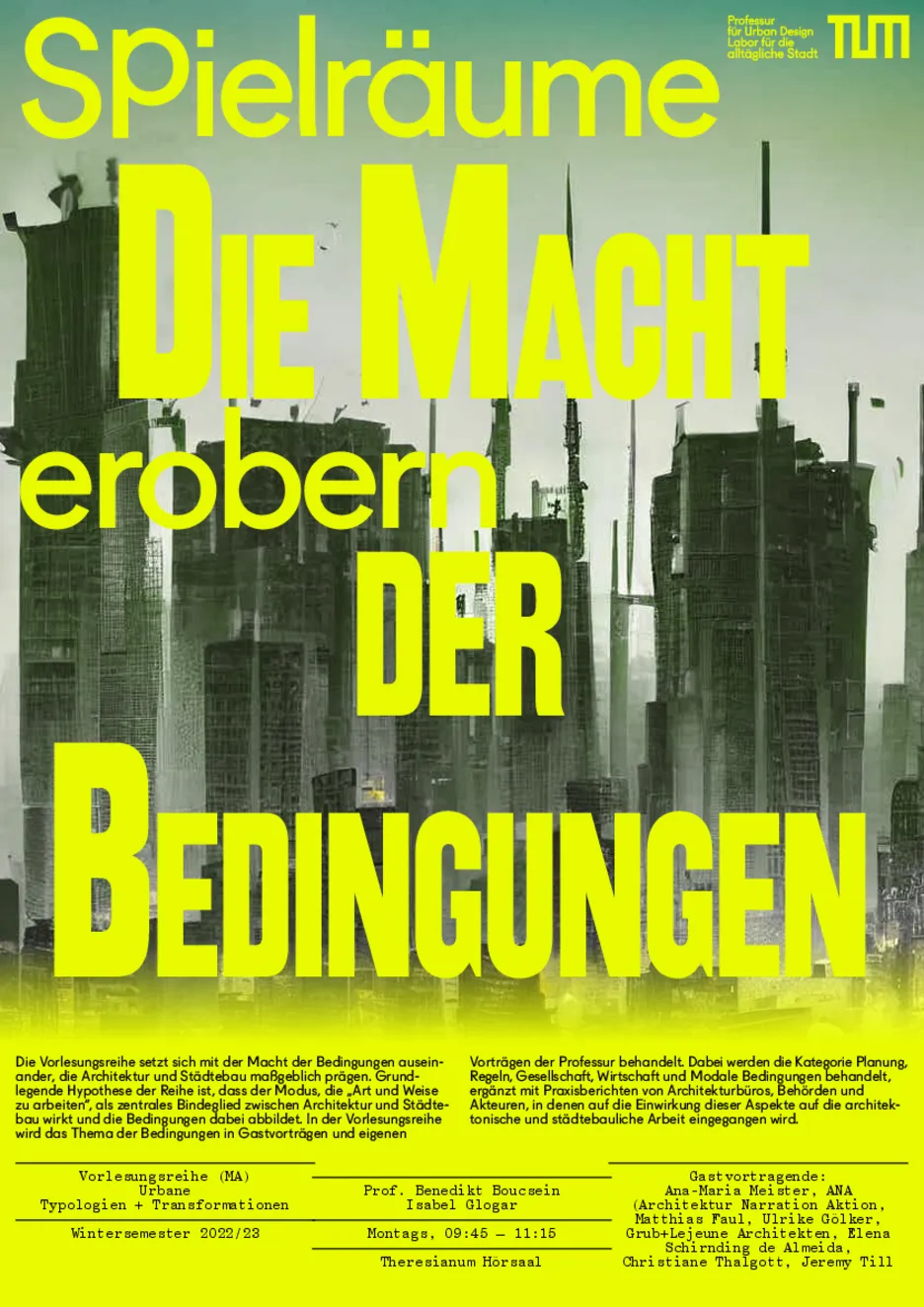
The Power of Conditions
Spielräume erobern
Prof. Benedikt Boucsein, Isabel Glogar
Architecture is not autonomous. If one takes a closer look at the processes of its creation, it even presents itself as extraordinarily externally controlled. Whole generations of architects drew their conceptual strength from the radical approach to this fact. Beyond the few special building tasks, however, the power of conditions results above all in "gray" everyday architecture.
Against this background, we are interested in the hypothesis of the mode, the "way of working", as a link between architecture and urban planning and as a way of exerting a positive influence via the conditions in practice.
The mode depends on the task, theme and content of the respective work; it is not individual, since it denotes a typical, overarching observable working method, nor is it freely selectable, since architecture is strongly influenced by external factors. Ideas, objectives, financial conditions, clients, prevailing building culture: the combination of these factors defines a project-specific modal space of possibility. Especially "everyday architecture" is shaped by these external conditions.
Both the mode and the modal space of possibility could be made fruitful in theory and practice so that architecture is understood more strongly as an activity rationally linked to society. In order to recognize and improve modal conditions, however, architects would have to become more enlightened in society and seek discourse outside their specialist circle.
In the course of the lecture series, the various categories that depict modal conditions will be dealt with in guest lectures and the professorship's own reports. Together with the analysis of such categories, the lecture series will also explore how architecture and urban planning can conquer "Spielräume" in the field of modal conditions in order to develop a conscious and contextual design practice. In this sense, the lecture series will be supplemented by practice reports from architectural offices, authorities and actors, in which the influence of these aspects on architectural and urban planning will be discussed.
Dates
Mondays, 9:45-11:15
Lecture dates, as well as literature and slides, are provided on Moodle for registered students, along with links to weekly lectures.
24.10.22 Introduction
contact
Isabel Glogar, isabel.glogar@tum.de